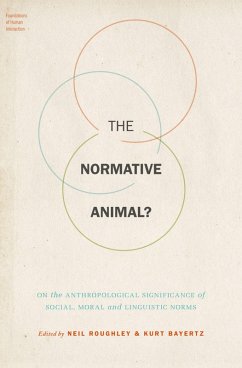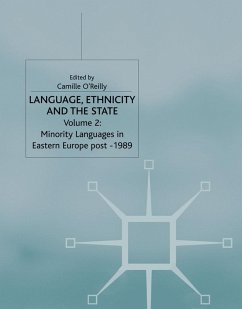
Sustaining the Nation (eBook, PDF)
The Making and Moving of Language and Nation
Versandkostenfrei!
Sofort per Download lieferbar
16,95 €
inkl. MwSt.
Weitere Ausgaben:

PAYBACK Punkte
8 °P sammeln!
This book is an ethnography of labor mobility and its challenges to the idea of the nation. Using the example of francophone Canada, it examines how social difference-race, ethnicity, language, gender-has been used to sort out who must (or can) be mobile and who must (or can) remain in place in the organization of global circulation of human and natural resources. It argues that "francophone Canada" can best be understood as an ethnoclass category that has embedded francophones into specific forms of labor mobility since the beginnings of European colonization, even as their social difference ...
This book is an ethnography of labor mobility and its challenges to the idea of the nation. Using the example of francophone Canada, it examines how social difference-race, ethnicity, language, gender-has been used to sort out who must (or can) be mobile and who must (or can) remain in place in the organization of global circulation of human and natural resources. It argues that "francophone Canada" can best be understood as an ethnoclass category that has embedded francophones into specific forms of labor mobility since the beginnings of European colonization, even as their social difference has been constructed as national in the interests of gaining political power. The result has been an erasure both of francophone mobilities and of their contribution to the rooted community that lies at the heart of the idea of the nation, and of francophone capacity to resist economic marginalization and exploitation. By following French Canadian workers back and forth between eastern and central Canada and the frontiers of the Canadian northwest, Sustaining the Nation explores how contemporary forms of labor mobility make it increasingly difficult for national structures and discourses to produce the francophone nation. By following the ideological tensions between language as a skill and language as a marker of belonging, the authors present grounded evidence of how the globalized new economy challenges the nation-state, and how mobilities and immobilities are co-constructed.
Dieser Download kann aus rechtlichen Gründen nur mit Rechnungsadresse in A, B, BG, CY, CZ, D, DK, EW, E, FIN, F, GR, HR, H, IRL, I, LT, L, LR, M, NL, PL, P, R, S, SLO, SK ausgeliefert werden.













